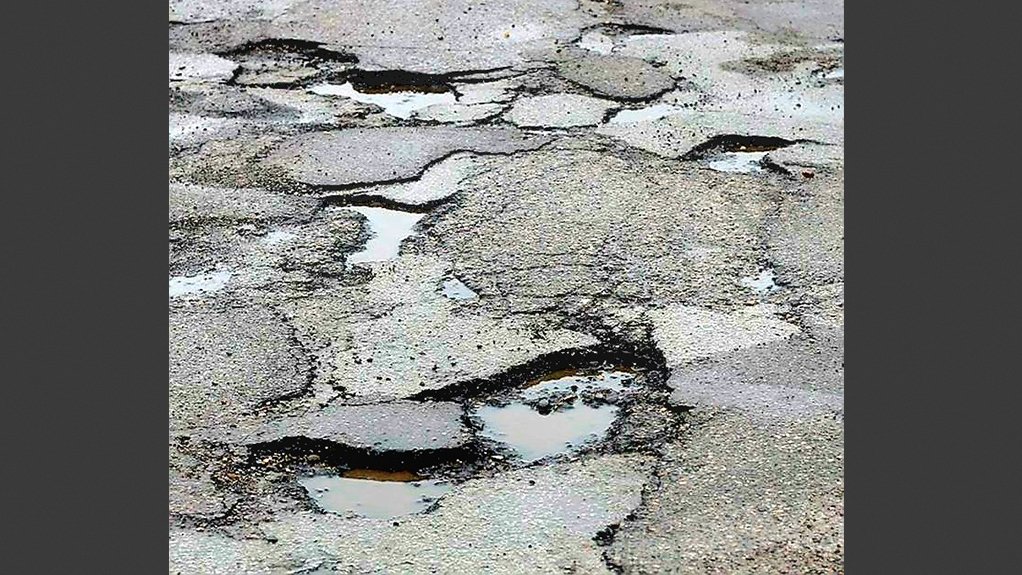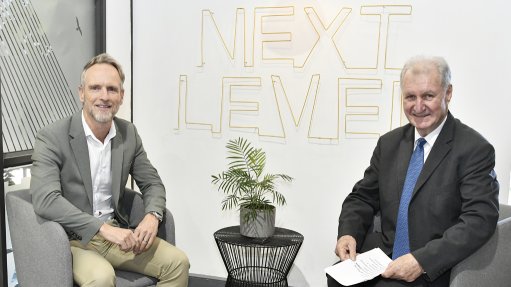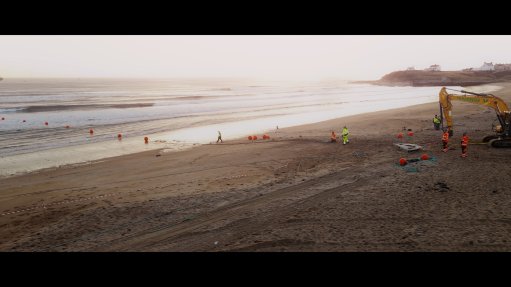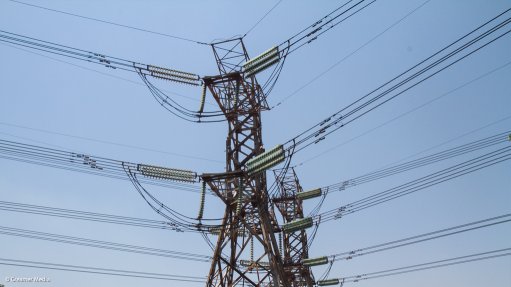Sanral-led programme aims to put an end to potholes in six months
Following the August 7 launch of the South African National Roads Agency Limited- (Sanral-) led Vala Zonke programme, which aims to tackle the thousands of potholes on roads across the country, Sanral engineering executive Louw Kannemeyer has told Engineering News the hope is to deal with most of the existing potholes within six months.
“The immediate focus is the repair of open potholes, because that is what is damaging tyres, rims and causing accidents. We are hoping to move into the preventive maintenance phase in six months from now,” he added on August 8.
The preventive maintenance phase would involve maintaining and controlling roadside vegetation and clearing drainage systems to prevent flooding, as well as sealing cracks before water can get in and applying diluted emulsions across the road surfaces to waterproof them better.
“We are starting with potholes, but the long-term aim is to drive effective preventive maintenance at all authority levels,” he explained.
At the launch of the programme, Transport Minister Fikile Mbalula appealed to provinces, municipalities, the private sector and the general public to support the campaign, which will also be known as operation Kwala Kaofela in Sesotho – which roughly translates to “close them all”.
The campaign to fix potholes, which was launched on the R57 in the Emfuleni local municipality in the south of Johannesburg, will be led by Sanral, acting as an agency of the Department of Transport (DoT). Sanral will be working closely with provincial and municipal roads departments to roll out the programme, which will be enabled through a mobile phone application (app) that will allow members of the public to report potholes.
Kannemeyer explained that Sanral was leading the programme because it already had the technology in place. With some minor adjustments to the coding for a negligible cost, the existing Sanral pothole reporting app could be tweaked to include reporting capabilities for municipal roads as well.
Most open potholes are found on municipal and provincial roads, while national roads managed by Sanral remain largely pothole free because of Sanral's policy of fixing reported potholes within 48 hours. This is enabled by Sanral’s app, which will now be rolled out on provincial and municipal levels to hopefully achieve the same results.
“This is an important campaign that will make a huge difference in the lives of many South Africans. It will change the face of our municipal and provincial roads from pothole-riddled to an acceptable state of repair. This launch will be replicated across the country with Premiers and MECs leading provincial launches in all nine provinces,” Mbalula said.
He added that “the reality of potholes hit home” for him when he undertook an inspection of the N12, in Wolmaransstad, in the North West province earlier this year.
“This is the reality of many communities in all our provinces. The bad roads, caused mainly by potholes, are one of the major hindrances to economic growth,” he said.
He also said service delivery was often hampered by corruption.
“Corruption not only eats into the social fibre of our society, but it also impacts on the integrity of the work that government does to deliver services . . . Often, the money is spent and the work is not done, but some civil servant or politician has become rich. To prevent corruption, operation Vala Zonke must contain consequence management measures. Where there is corruption, it must be dealt with decisively,” Mbalula said.
He noted that the maintenance challenges and backlog in South Africa’s road network had to start with putting measures in place that would halt the deterioration of the country’s roads.
“Attending to potholes as soon as possible after they occur is the most effective way to arrest this decline,” he said.
The Vala Zonke app will work in conjunction with Sanral’s pothole management app and will allow the public to raise any issues, upload pictures of potholes, and provide a real-time location of the road on an interactive map that will show the owners of the different roads. The app will also provide status updates on issues raised using a ticketing system.
“The information then gets assigned to the relevant authority, depending on where the road is, and the maintenance depot responsible for that road attends to fixing the pothole,” said Kannemeyer.
The Sanral pothole app is currently available on the Apple App Store and will be made available to Android users on the Google Play store within the next few days.
Over the next six months, the DoT – through Sanral – will closely monitor and assess the impact of the interventions through a monitoring and evaluation capability which has been put in place.
“This will enable Sanral to generate audit reports, which will form the basis for validation of the work undertaken and the turn-around time in attending to potholes,” Mbalula said.
He noted that it was critically important to involve the private sector in the pothole repair campaign.
“As part of our stakeholder engagements, we will reach out to private companies, communities and other stakeholders to play their part in supporting government efforts to preserve and improve our road infrastructure.
He said that, through partnerships with institutions of learning and the sectoral education and training authorities, government aimed to infuse a strong skills development methodology to the intervention.
“A skills revolution must become a pillar of this intervention at all levels of government,” Mbalula said.
The Vala Zonke programme forms part of the DoT’s support towards district municipalities with regards to Road Infrastructure Planning, which is afforded through the Rural Road Asset Management Systems Grant, as provided for in the Division of Revenue Act.
Article Enquiry
Email Article
Save Article
Feedback
To advertise email advertising@creamermedia.co.za or click here
Comments
Press Office
Announcements
What's On
Subscribe to improve your user experience...
Option 1 (equivalent of R125 a month):
Receive a weekly copy of Creamer Media's Engineering News & Mining Weekly magazine
(print copy for those in South Africa and e-magazine for those outside of South Africa)
Receive daily email newsletters
Access to full search results
Access archive of magazine back copies
Access to Projects in Progress
Access to ONE Research Report of your choice in PDF format
Option 2 (equivalent of R375 a month):
All benefits from Option 1
PLUS
Access to Creamer Media's Research Channel Africa for ALL Research Reports, in PDF format, on various industrial and mining sectors
including Electricity; Water; Energy Transition; Hydrogen; Roads, Rail and Ports; Coal; Gold; Platinum; Battery Metals; etc.
Already a subscriber?
Forgotten your password?
Receive weekly copy of Creamer Media's Engineering News & Mining Weekly magazine (print copy for those in South Africa and e-magazine for those outside of South Africa)
➕
Recieve daily email newsletters
➕
Access to full search results
➕
Access archive of magazine back copies
➕
Access to Projects in Progress
➕
Access to ONE Research Report of your choice in PDF format
RESEARCH CHANNEL AFRICA
R4500 (equivalent of R375 a month)
SUBSCRIBEAll benefits from Option 1
➕
Access to Creamer Media's Research Channel Africa for ALL Research Reports on various industrial and mining sectors, in PDF format, including on:
Electricity
➕
Water
➕
Energy Transition
➕
Hydrogen
➕
Roads, Rail and Ports
➕
Coal
➕
Gold
➕
Platinum
➕
Battery Metals
➕
etc.
Receive all benefits from Option 1 or Option 2 delivered to numerous people at your company
➕
Multiple User names and Passwords for simultaneous log-ins
➕
Intranet integration access to all in your organisation




















